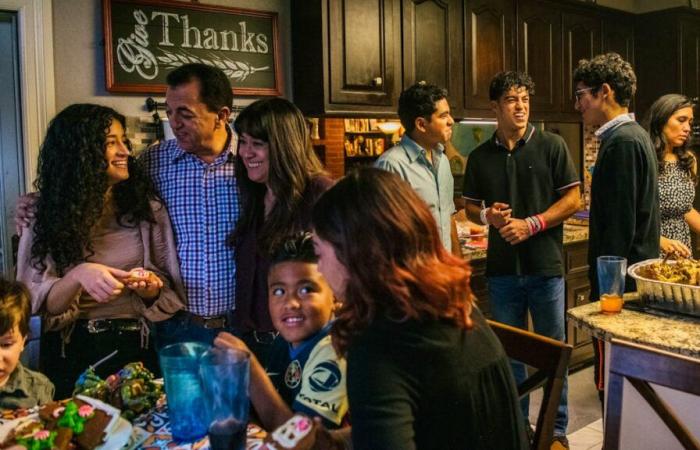In a tense America, more than 71% of Americans will try to avoid talking about politics during these reunions, according to a survey carried out by the American channel CBS.
Getty Images via AFP
Jeff’s voice trembles: “My parents don’t want me.” For the first time, they did not invite him for Thanksgiving, an essential family celebration in the United States, because he did not vote for Donald Trump three weeks ago.
The parents of the 59-year-old real estate agent, who prefers not to give his last name for fear of never being able to see his family again, swear by the Republican. Married to a man, Jeff has progressive values and believes in a more inclusive society. “Trump tore my family in two.”
His brother cut ties five years ago. “He thinks we should sentence homosexuals to death.” And his parents asked him not to make the trip between Washington, where he lives, and Florida this weekend. “They consider me not patriotic enough because I don’t support Trump. They don’t want to talk to me. It’s terrifying.”
“A slap”
Jeff’s case is far from isolated. Deb Miedema, 50, lives in Minnesota, in the northern United States. She has been preparing turkey for over twenty years for the big family reunion but this year she decided to cancel the festivities.
“I can’t imagine preparing a meal for 40 people, half of whom are OK with this situation (…). Trump is a liar, a criminal, a horrible person, and they have no problem with that, they even agree with him!”
On November 5, she voted for Democrat Kamala Harris. Donald Trump’s victory with more than 76 million votes, or half of the electorate, still feels like a slap in the face.
“This year, we are seeing real tension within families. American society today is so divided that many have adopted the mindset: ‘You’re with us, or you’re against us,’ says Laurie Kramer, a psychology professor at Northeastern University in Boston.
“In common perception, family moments should be joyful, full of love, protective. So when the family becomes a place of tension, we can quickly feel depressed, alone, isolated,” adds Laurie Kramer.
Friends, real family
“It’s hard, very hard,” says Ana, 31. For Thanksgiving, the young woman employed by a Boston university normally goes to her grandmother’s near Philadelphia, but this time she has decided against it.
“I come from a big Italian family, with 18 aunts and uncles. All my uncles love Trump and I can’t listen to them make jokes about what’s going on and watch them raise my cousins with these ideas.
Ana is not her real first name: she asked to use a pseudonym so that her grandmother would not learn the real reason for her absence. “I told him I was sick.”
“I feel alone, very alone. It’s weird to refuse to participate in this big celebration, which is a tradition for everyone. But for me, it’s way too close to the election,” adds Ana, who will celebrate Thanksgiving with friends in New York.
In a tense America, more than 71% of Americans will try to avoid talking about politics during these reunions, according to a survey carried out by the American channel CBS.
“You have to accept that everyone is different and find a way to accept these differences to preserve your family relationships. Otherwise, it is neither good for families nor for individuals,” emphasizes Professor Laurie Kramer.






